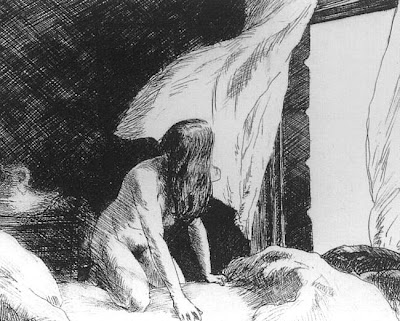In a very un-modern way, I routinely find myself struggling to accept the ethical implications of social and biological Darwinists. Generally, these Darwinists argue that what we call "morality" is a different way of articulating "those behaviors and characteristics that maximize surviving and thriving".
From time to time, I read thought provoking books (such as "
The Moral Animal: Evolutionary Psychology and Everyday Life", by Robert Wright) or articles (such as "
Three-way mating game of North American lizard found in distant European relative") on the subject and I get an uneasy feeling that what is undoubtedly fascinating science is being used to promote a highly questionable view of ethics and religion.
It does happen.The philosophical principle most often violated in this, and similar arguments is called the "fact-value distinction" (or perhaps, depending on the argument, the "is-ought distinction". Associated closely with David Hume, this principle asserts that one can not ground normative arguments in positive arguments. One can not say that because a being
does behave a certain way, then it
ought to behave that way, as some evolutionary psychologists do. The first claim belongs to the realm of description / empiricism, while the second is a prescriptive judgment. My dog does poop on my jackass neighbor's lawn, but one can not conclude from this that she has a moral obligation to do so.
Sed Digressio. Consider the following conclusion drawn from the scientific observation explained in the lizard article above:
Force defeats cooperation. Cooperation defeats deception. Deception defeats force.What science can not tell us here is whether or not we
should be forceful, cooperative, or deceptive - it only tells us the way the world
is. We still must make a moral judgment about who we intend to be, and what we
ought to do. Authors like Wright tend to blur this line, while I prefer the delineation to be sharp.






